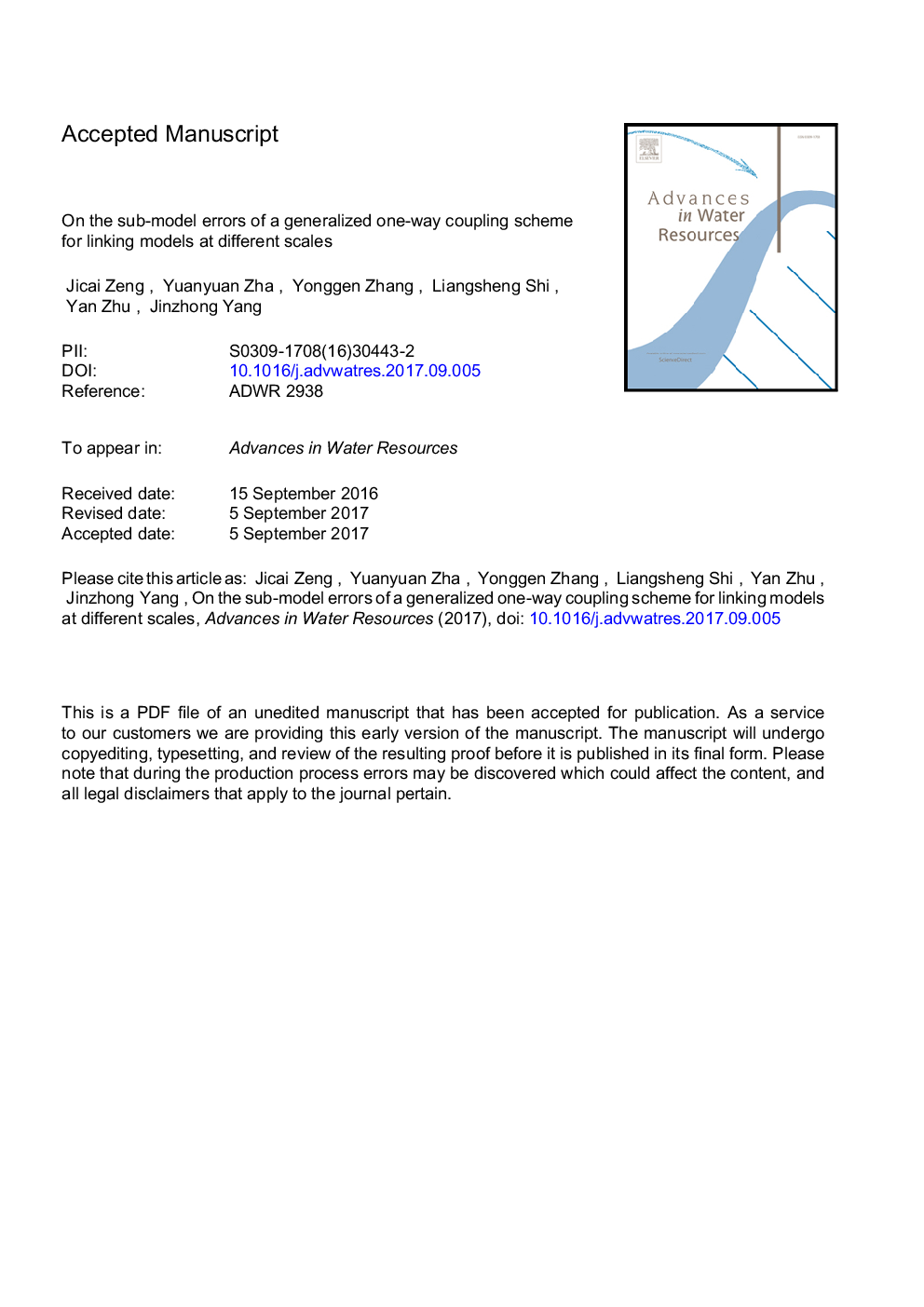| Article ID | Journal | Published Year | Pages | File Type |
|---|---|---|---|---|
| 5763681 | Advances in Water Resources | 2017 | 41 Pages |
Abstract
Multi-scale modeling of the localized groundwater flow problems in a large-scale aquifer has been extensively investigated under the context of cost-benefit controversy. An alternative is to couple the parent and child models with different spatial and temporal scales, which may result in non-trivial sub-model errors in the local areas of interest. Basically, such errors in the child models originate from the deficiency in the coupling methods, as well as from the inadequacy in the spatial and temporal discretizations of the parent and child models. In this study, we investigate the sub-model errors within a generalized one-way coupling scheme given its numerical stability and efficiency, which enables more flexibility in choosing sub-models. To couple the models at different scales, the head solution at parent scale is delivered downward onto the child boundary nodes by means of the spatial and temporal head interpolation approaches. The efficiency of the coupling model is improved either by refining the grid or time step size in the parent and child models, or by carefully locating the sub-model boundary nodes. The temporal truncation errors in the sub-models can be significantly reduced by the adaptive local time-stepping scheme. The generalized one-way coupling scheme is promising to handle the multi-scale groundwater flow problems with complex stresses and heterogeneity.
Keywords
Related Topics
Physical Sciences and Engineering
Earth and Planetary Sciences
Earth-Surface Processes
Authors
Zeng Jicai, Zha Yuanyuan, Zhang Yonggen, Shi Liangsheng, Zhu Yan, Yang Jinzhong,
